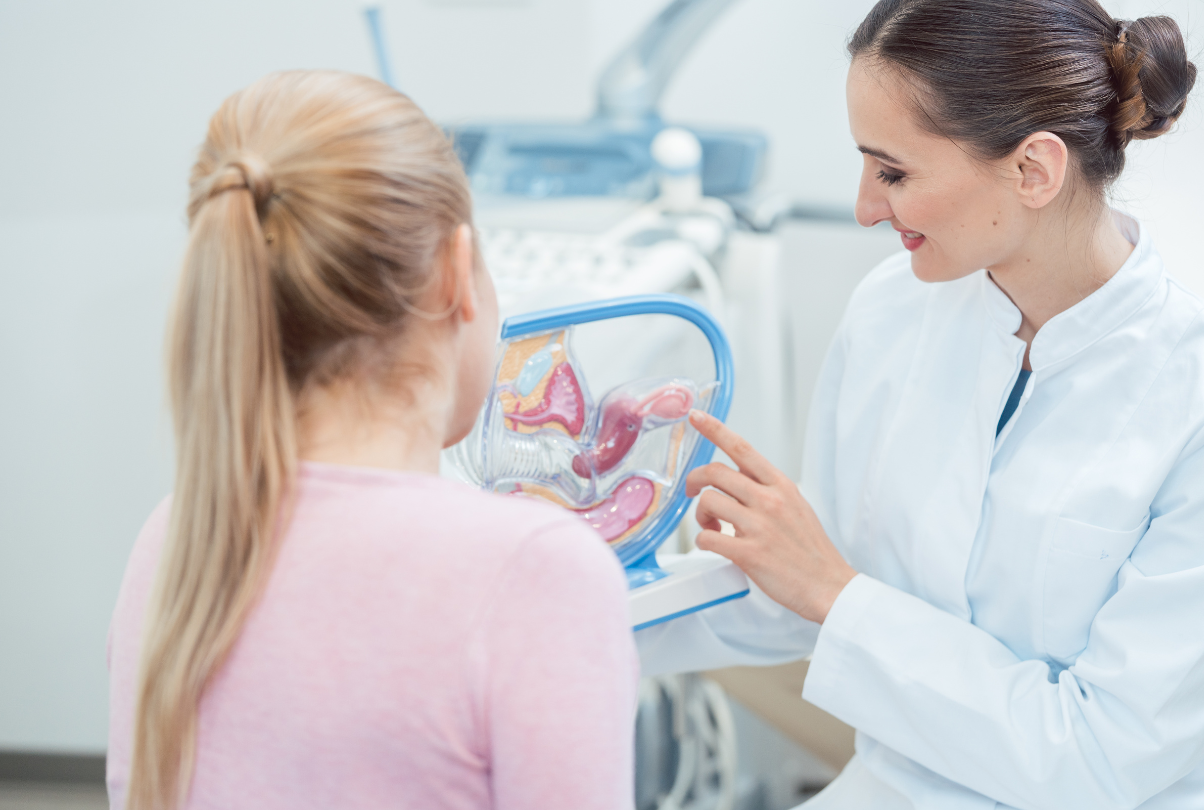If you and your partner have been trying to conceive without success, it’s understandable that you would start to wonder what to do next. You might be wondering if you should wait a little longer before seeing a fertility specialist or just go now to avoid wasting time.
In this article, we will explore various aspects of fertility, including what to consider before consulting a specialist, their role, and the treatments available. This will give you a better understanding of fertility and the various treatment options available to support you on your fertility journey.
Why is it recommended that you seek help from a specialist?

Every couple's journey to conception is unique because there are multiple factors that can affect fertility. This is why it is vital to seek help from fertility specialists if you suspect that you may have fertility issues due to difficulties conceiving.
A fertility specialist is a medical professional who specialises in diagnosing and treating fertility issues to help couples who have been struggling to conceive. Fertility specialists also diagnose conditions that may affect both male and female fertility and provide treatments for such issues.
When should I see a fertility specialist?
If you’re under 35 years old, it’s recommended that you try to conceive naturally for a year before coming to a fertility specialist. If you’re over 35, you should try for six months. You should also time intercourse a few days before or at ovulation, as sperm can survive for up to five days in the womb.
However, if you have been doing this regularly with no success, recognising the signs indicating that it is time to consult a fertility specialist about your fertility issues can help you to better understand your fertility health.
Age:
Fertility starts to decline more significantly from the age of 35, so it is advisable to seek an early evaluation from a fertility specialist if you are aged between 35 and 39.
For women over 35, you should seek help after six months of trying to conceive. However, if you are under 35, you should consider consulting a fertility specialist after a year of unsuccessful attempts to conceive.
Period issues:
Irregular menstrual cycles can suggest the presence of ovulatory disorders, making it difficult to predict ovulation, and also suggest other underlying health conditions such as polycystic ovary syndrome (PCOS).
Heavy periods could also be a symptom of underlying health conditions such as endometriosis, which affect fertility.
Amenorrhoea, or the absence of menstruation, could indicate possible hormone imbalances, PCOS, and thyroid disorders that affect fertility.
Fibroids and cysts:
Physical issues such as fibroids and cysts can also affect your fertility.
If you experience symptoms such as pelvic pain, abdominal pain, pain during sex, or bloating, consider meeting a specialist to get an immediate assessment.
History of reproductive issues:
Previous miscarriages may indicate some underlying issues, which could be genetic, hormonal, anatomical, or related to the immune system.
A history of sexually transmitted infections (STIs), pelvic inflammatory disease, or endometriosis may also negatively impact fertility.
History of cancer:
A history of gynaecologic cancers (cancers that start in a woman's reproductive organs, such as cervical cancer or ovarian cancer) can also significantly affect your fertility.
The treatments for these conditions, which include surgery, chemotherapy, and radiation, can potentially damage reproductive organs or lead to premature menopause.
If possible, you may need to discuss your fertility concerns with your oncology team before starting treatment to explore fertility-preserving options such as egg freezing.
Male fertility concerns:
Male fertility issues such as low sperm count, sperm motility issues, or erectile dysfunction can make conception more difficult. This is due to the sperm's reduced ability to swim to the fallopian tube and fertilise the egg.
Genetic disorders:
Women could also experience issues with fertility due to genetic disorders such as Turner syndrome or Kallmann syndrome and may experience changes in their DNA that affect one or more genes that could have been inherited from their parents.
Men could also experience genetic disorders that can impact and reduce male fertility, such as Klinefelter syndrome, Y-chromosome microdeletions, changes in the CFTR gene, and Kallmann syndrome.

Our fertility specialists
Loading...
Fertility treatment in Thomson Medical
If you have any concerns or would like to learn more about your reproductive health and your partner's, consult a fertility specialist that specialises in reproductive endocrinology and infertility conditions. At Thomson Fertility Centre, our specialists can assess your fertility health and identify issues that may affect your chances of conceiving.
Following your initial consultation with a fertility specialist, you will undergo a fertility assessment and diagnosis, which includes the following:
Evaluation of ovulation, ovarian reserve, and hormonal function
Diagnostic testing for underlying conditions affecting fertility
Blood tests for women that test over 14 different components, including full blood count and hormone levels
Pelvic ultrasound scans for women to examine and identify any potential abnormalities within their reproductive system.
Semen analysis for males to examine their sperm health in terms of sperm count, motility and morphology.
Following this, your fertility specialist will review your reproductive health test results with you and your partner, taking into account your past and current fertility status, and suggest potential fertility treatment options.
Our fertility package
Additionally, we also provide fertility assessment services for couples planning a family or wishing to evaluate their reproductive health. The package costs $490.50 (including GST) and includes standard diagnostic tests for both partners.
Here’s what you can expect during your fertility assessment:
- You will meet directly with experienced fertility doctors, rather than general practitioners.
- Fertility testing and consultations are carried out within the same centre.
- Results are explained during a consultation with your fertility specialist.
- Depending on the results, further investigations or treatment options may be recommended.
For further information about this couple's fertility screening, request an appointment with Thomson Medical.
Other available fertility treatment options
If deemed necessary, after your fertility assessment and diagnosis above, your fertility specialists may also recommend other fertility treatment options if necessary, such as:
Assisted reproductive treatment (ART)
Intrauterine insemination (IUI):
IUI involves putting sperm that has been specially prepared directly into the womb around the time of ovulation. This less invasive option is suitable for unexplained infertility, mild male factor issues, or cervical factors.
In vitro fertilisation (IVF):
IVF is an ART procedure usually recommended if treatment like IUI is unsuccessful or the infertility is caused by blocked fallopian tubes, male factor infertility, or endometriosis.
IVF involves collecting mature eggs and fertilising them with sperm in our laboratory before transferring the resulting embryo(s) to your womb.
Other fertility options:
Egg freezing:
Egg freezing involves preserving eggs for future use. This method usually allows women to preserve their fertility by enabling them to harvest eggs at a younger age, which can then be used when they are ready to start a family later in life.
Surgical intervention:
Surgical intervention is a procedure that is designed to tackle more anatomical issues, such as fibroids or blocked fallopian tubes that may be affecting your ability to conceive.
FAQ
When should you seek fertility help?
If you are a woman under 35 and have not conceived after trying for one year, or if you are 35 or over and have not conceived after trying for six months, you should consult a fertility specialist.
However, if you have irregular periods, have had previous miscarriages or have a known condition such as PCOS or endometriosis, you should seek help sooner, regardless of how long you have been trying.
How can I check my fertility in Singapore?
In Singapore, you can consult fertility specialists at private clinics or public hospitals. Gynaecologists or even GPs can carry out some basic assessments and provide referrals. Private clinics usually offer quicker appointments and more thorough screening packages.
How do I know if I'm completely infertile?
Complete infertility is rare. Infertility is defined as being unable to conceive after 12 months of regular unprotected intercourse (six months if you are over 35).
Most fertility issues can be treated with the right interventions. A thorough assessment of you and your partner's fertility can identify the specific cause and suitable treatment options.
What is the best age for female fertility?
Female fertility peaks between the ages of 20 and 24, with an approximately 85% conception rate within one year. The optimal reproductive years are generally considered to be between 25 and 30, when fertility remains high and physical and emotional readiness align. Fertility begins to decline gradually after the age of 32 and more significantly after the age of 35.
What are the warning signs of infertility?
There are a few warning signs of infertility, which include:
Irregular or absent menstrual cycles
Very painful periods (possible endometriosis)
Pain during intercourse
Unusual menstrual bleeding patterns
Previous pelvic infections or sexually transmitted infections (STI)
Known genetic conditions
Testicular pain or swelling
How do I know if I am fertile enough to get pregnant?
Most couples conceive within a year of having regular unprotected intercourse. Good signs of fertility include:
Age under 35
A healthy body weight and overall good health
Regular menstrual cycles (21-35 days)
Clear signs of ovulation, such as stretchy cervical mucus, mild mid-cycle cramping and a slight temperature rise
The information provided is intended for general guidance only and should not be considered medical advice. To receive personalised recommendations based on your medical conditions, request an appointment with Thomson Fertility Centre.
For more information, contact us:
Thomson Fertility Centre
- Paragon: 6252 7766
Thomson Specialists (Women's Health)
Thomson Women's Clinic
- Novena:
6592 6686 (Call), 8611 8986 (WA) - Bukit Batok:
6569 0668 (Call), 8686 3525 (WA) - Choa Chu Kang:
6893 1227 (Call), 8282 1796 (WA) Jurong:
6262 8588 (Call), 6262 8588 (WA)- Katong (female doctor):
6970 2272 (Call), 8611 9020 (WA) - Punggol:
6243 6843 (Call), 8811 0328 (WA) - Sembawang: 6753 5228
- Sengkang: 6388 8125
- Serangoon (female doctor): 6382 3313
- Tampines: 6857 6266
- Tiong Bahru: 6276 1525


.png?branch=production)